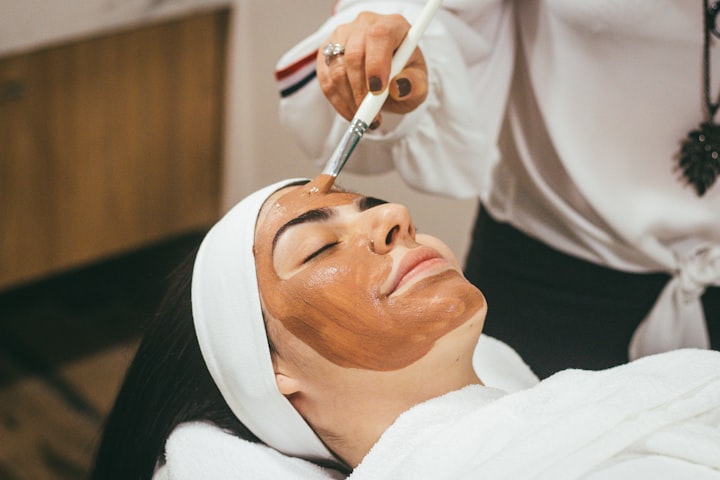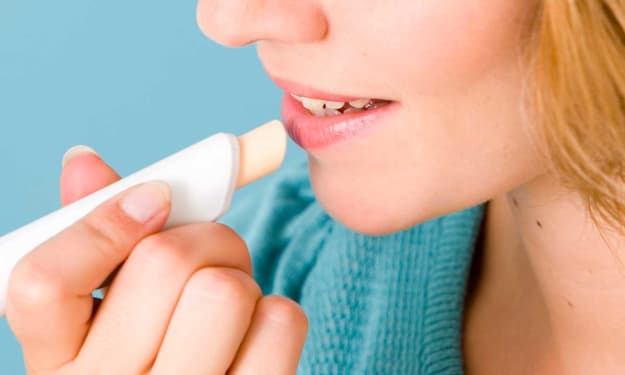The Science of Aging Skin: How to Slow Down the Clock with Skincare
Explore the latest research on aging skin and discover effective strategies for maintaining a youthful complexion

Skincare is the practice of taking care of the skin to keep it healthy, clean, and attractive. It involves a range of activities and products that are designed to improve the appearance and health of the skin, including cleansing, moisturizing, exfoliating, and protecting the skin from sun damage.
Skincare is an important part of overall health and wellness, as the skin is the body's largest organ and plays a crucial role in protecting the body from the outside environment. Skincare can help prevent skin damage, premature aging, and certain skin conditions, such as acne, eczema, and psoriasis.
There are many different types of skincare products available, including cleansers, toners, moisturizers, serums, and masks. These products can be tailored to suit different skin types and concerns, such as oily or dry skin, acne-prone skin, or aging skin.
In addition to using skincare products, it is also important to maintain a healthy lifestyle, including a balanced diet, regular exercise, and adequate sleep, as these factors can also affect the health and appearance of the skin.
There are several types of skincare products that can be used to care for the skin. Here are some of the most common types:
1.Cleansers: Cleansers are used to remove dirt, oil, and makeup from the skin. They can be in the form of foaming cleansers, cream cleansers, or oil-based cleansers.
2.Toners: Toners are used after cleansing to remove any remaining traces of dirt or makeup, and to balance the skin's pH levels. They can also help to tighten pores and improve the texture of the skin.
3.Moisturizers: Moisturizers are used to hydrate the skin and prevent dryness. They can be in the form of creams, lotions, or serums, and can be tailored to suit different skin types.
4.Exfoliators: Exfoliators are used to remove dead skin cells from the surface of the skin, which can help to improve the texture and appearance of the skin. They can be in the form of physical exfoliants, such as scrubs, or chemical exfoliants, such as alpha-hydroxy acids (AHAs) and beta-hydroxy acids (BHAs).
5.Serums: Serums are lightweight, fast-absorbing products that are designed to target specific skin concerns, such as fine lines, dark spots, or dehydration. They are typically formulated with high concentrations of active ingredients.
6.Masks: Masks are used to treat specific skin concerns, such as dryness, acne, or dullness. They can be in the form of sheet masks, clay masks, or peel-off masks.
7.Sunscreen: Sunscreen is used to protect the skin from the harmful effects of the sun's UV rays, which can cause premature aging, sunburn, and skin cancer. It is important to choose a sunscreen with a high SPF and broad-spectrum protection.
Skincare is important for several reasons:
1.Protection: The skin is the body's first line of defense against environmental aggressors such as pollution, UV rays, and harmful bacteria. By maintaining a healthy skincare routine, you can help to protect your skin from damage and maintain its natural barrier function.
2.Hydration: Keeping your skin properly hydrated is important to maintain its elasticity, smoothness, and overall health. Dry skin can become itchy, flaky, and uncomfortable, and can even lead to more serious skin conditions if left untreated.
3.Anti-Aging: Skincare can help to prevent premature aging of the skin, such as fine lines, wrinkles, and age spots. By using products with active ingredients like retinoids and antioxidants, you can help to reduce the signs of aging and keep your skin looking youthful.
4.Treatment: Skincare can also be used to treat specific skin concerns, such as acne, rosacea, or eczema. By using products that are tailored to your skin type and concerns, you can help to improve the health and appearance of your skin.
5.Confidence: Taking care of your skin can help to boost your confidence and self-esteem. When your skin looks and feels healthy, you are more likely to feel good about yourself and project a positive image to others.
Overall, skincare is an important part of maintaining overall health and well-being. By taking care of your skin, you can help to protect it from damage, maintain its natural beauty, and feel good about yourself.
There are many benefits to maintaining a good skincare routine. Here are some of the main benefits:
1.Improved Appearance: Skincare can help to improve the appearance of the skin by reducing the signs of aging, brightening the complexion, and reducing the appearance of blemishes and acne.
2.Protection: Skincare can help to protect the skin from environmental aggressors such as UV rays, pollution, and harsh weather conditions.
3.Hydration: Skincare can help to hydrate the skin, preventing dryness, flakiness, and other signs of dehydration.
4.Health: Skincare can help to maintain the overall health of the skin, preventing skin conditions such as acne, eczema, and rosacea.
5.Self-Confidence: Taking care of your skin can help to boost your self-confidence and self-esteem, allowing you to feel good about yourself and project a positive image to others.
6.Relaxation: Skincare can be a relaxing and calming ritual that helps to reduce stress and promote a sense of well-being.
7.Customization: Skincare can be tailored to meet the unique needs of each individual, allowing you to address specific skin concerns and achieve optimal results.
Overall, the benefits of skincare are numerous and can contribute to improved physical health, emotional well-being, and self-confidence.
While skincare can provide numerous benefits, there are also several potential disadvantages that should be considered:
1.Expense: Some skincare products can be quite expensive, and it may be difficult to find affordable options that work well for your skin.
2.Time-consuming: Developing an effective skincare routine can take time and effort, and you may need to experiment with different products and techniques to find what works best for your skin.
3.Side effects: Some skincare products can cause adverse reactions such as dryness, irritation, or allergic reactions.
4.Environmental impact: Many skincare products contain chemicals that can be harmful to the environment, such as microplastics and certain preservatives.
5.Unrealistic expectations: The skincare industry can be prone to making exaggerated claims about the effectiveness of products, which can lead to unrealistic expectations among consumers.
It's important to do your research and consult with a dermatologist before starting any new skincare regimen to ensure that you are using products that are safe and effective for your skin type and individual needs.
Here are some simple recipes for making your own skincare products at home:
• Facial Cleanser:
1/4 cup liquid castile soap
1/4 cup honey
2 tbsp almond oil
10 drops of essential oil of your choice
Mix all the ingredients together and store in a bottle. To use, apply a small amount of the cleanser to your face and massage in circular motions. Rinse with warm water.
• Exfoliating Scrub:
1/2 cup sugar
1/4 cup coconut oil
10 drops of essential oil of your choice
Mix all the ingredients together and store in a jar. To use, apply the scrub to your face and massage in circular motions. Rinse with warm water.
• Moisturizer:
1/4 cup shea butter
1/4 cup coconut oil
1 tbsp sweet almond oil
10 drops of essential oil of your choice
Melt the shea butter and coconut oil in a double boiler or microwave. Add in the sweet almond oil and essential oil and mix well. Pour into a jar and let it cool and solidify. To use, apply a small amount to your face and massage until absorbed.
Note: Be sure to do a patch test on your skin before using any new skincare products, and be aware of any allergies or sensitivities you may have to certain ingredients.
• Face Mask:
1/4 ripe avocado
1 tbsp plain yogurt
1 tbsp honey
Mash the avocado in a bowl until smooth. Add in the yogurt and honey and mix well. Apply to your face and leave on for 15-20 minutes. Rinse with warm water.
• Lip Balm:
1 tbsp beeswax pellets
1 tbsp coconut oil
1 tbsp shea butter
10 drops of essential oil of your choice
Melt the beeswax pellets, coconut oil, and shea butter in a double boiler or microwave. Add in the essential oil and mix well. Pour into a lip balm container and let it cool and solidify.
• Body Scrub:
1/2 cup sea salt
1/4 cup coconut oil
10 drops of essential oil of your choice
Mix all the ingredients together and store in a jar. To use, apply the scrub to your body and massage in circular motions. Rinse with warm water.
• Toner:
1/4 cup witch hazel
1/4 cup rose water
5 drops of essential oil of your choice
Mix all the ingredients together and store in a bottle. To use, apply the toner to your face with a cotton pad after cleansing.
Note: When making your own skincare products, it's important to use high-quality ingredients and keep them stored in a cool, dry place. Additionally, some essential oils may not be suitable for certain skin types or may cause irritation, so it's important to do your research and consult with a healthcare professional if necessary.
• Eye Cream:
1/4 cup coconut oil
1 tbsp sweet almond oil
1 tsp vitamin E oil
5 drops of essential oil of your choice
Melt the coconut oil in a double boiler or microwave. Add in the sweet almond oil, vitamin E oil, and essential oil and mix well. Pour into a jar and let it cool and solidify. To use, apply a small amount to the area around your eyes and gently massage in.
• Body Butter:
1/2 cup shea butter
1/4 cup coconut oil
1/4 cup almond oil
10 drops of essential oil of your choice
Melt the shea butter and coconut oil in a double boiler or microwave. Add in the almond oil and essential oil and mix well. Pour into a jar and let it cool and solidify. To use, apply a small amount to your skin and massage in.
• Sunscreen:
1/4 cup coconut oil
1/4 cup shea butter
1/4 cup beeswax pellets
2 tbsp zinc oxide powder
10 drops of essential oil of your choice
Melt the coconut oil, shea butter, and beeswax pellets in a double boiler or microwave. Add in the zinc oxide powder and essential oil and mix well. Pour into a jar and let it cool and solidify. To use, apply a small amount to your skin before going outside.
Note: Homemade sunscreen may not provide the same level of protection as commercial sunscreen, and it's important to reapply regularly and seek shade during peak sun hours. Zinc oxide may leave a white cast on your skin, so adjust the amount to your preference.
About the Creator
Miracle Phronesis
The World Belongs To Those Who Read






Comments
There are no comments for this story
Be the first to respond and start the conversation.